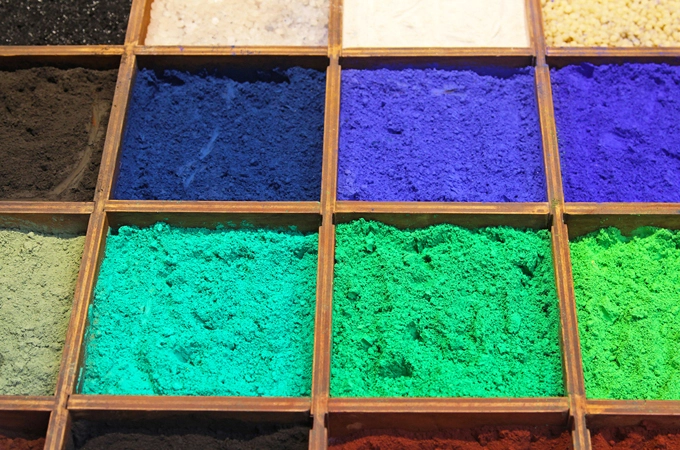Silane coupling agent is a substance with both hydrophilic and hydrophobic functional groups. Its hydrophilic functional group is generally a radical that can undergo a chemical reaction on the inorganic surface; the hydrophobic functional group is mostly a non-radical that can undergo a chemical reaction with organic matter. It is widely used in surface modification of powders, fiberglass and metal corrosion protection surface treatment, as well as viscosity enhancing agents for coatings and sealants.
Silane coupling agent for surface modification of inorganic fillers
Polymer materials such as plastics and rubbers all require the addition of different inorganic fillers to meet their different performance requirements. The surface of common inorganic fillers is hydrophilic and cannot be well dispersed in resin and rubber during use, which seriously affects the performance of composite materials. In practical applications, by modifying the surface of the filler, the filler can have hydrophobicity and its function can be fully exerted.
By treating inorganic fillers with silane coupling agents, a non-molecular film can be formed on the surface of the filler, which improves the stability, dispersion and adhesion of the filler in rubber and plastic, improves the electrical, mechanical and weather resistance properties of filled plastics and rubbers, and promotes the improvement of process properties.
For example, the carbonated calcium treated with a coupling agent has good compatibility with polymer molecules. At the same time, because the silane coupling agent can form a molecular bridge between the calcium carbonate molecule and the polymer molecule, it enhances the interaction between the organic polymer or resin and the calcium carbonate, which can significantly improve the mechanical properties of thermoplastic composite materials, such as impact strength, tensile strength, flexural strength, and elongation.
Silane coupling agent for fiberglass surface treatment
Fiberglass, as an inorganic non-metallic material, has good insulation, high heat resistance, good corrosion resistance, high mechanical strength, and it is commonly used as a reinforcing material, electrical insulation material, and insulation and thermal insulation material in composite materials. However, the large surface area of fiberglass makes it difficult to be compatible with resin, greatly reducing its filling effect.
In order to improve the bonding performance between the resin and fiberglass, improve the strength, water resistance, electrical, and weather resistance of fiberglass-reinforced composites, it is necessary to modify the surface of the fiberglass. Currently, the most commonly used surface modifier for fiberglass surface modification is silane coupling agent, including vinyl silane, aminosilane, and methacryloxysilane.
Silane coupling agent for surface modification of nano-powders
Nano-powders have the characteristics of small particle size and large specific surface area, so they have unique small size effects, tunnel effects, and surface effects, and are favored for their excellent reinforcement, stability, and thickening effects, and are widely used in the fields of plastics, rubber, and coatings.
Since the surface area of nano-powders is large and easy to aggregate, it is difficult to disperse and infiltrate in the organic phase, which limits the play of its ultrafine effect. Therefore, it is necessary to modify its surface to improve its compatibility and binding force with organic molecules.
By using the coupling agent molecule to undergo a certain chemical reaction with the surface of the nano-powder, the silane coupling agent can be evenly covered on the surface of the nano-powder, thereby improving its hydrophobicity, which is a commonly used method for modifying nano-powders.
Silane coupling agent used as a viscosity-enhancing agent for sealants and coatings
As a viscosity-enhancing agent, silane coupling agent is widely used in the fields of adhesives, sealants, and coatings, and can improve their adhesive strength, water resistance, and weather resistance.
By introducing functional silane coupling agents into coatings, the silane can form an interpenetrating network polymer (IPN) or cross-linking reaction with the forming polymer in the coating, thereby promoting the wetting of the coating to the substrate and improving the adhesion of the coating.
In addition, alkyl and aryl silanes can also improve the gloss, coverage, compatibility and wetting and dispersing properties of coatings towards pigments.
Other applications of silane coupling agent
Silane coupling agents are also widely used in the metal surface treatment, construction and other industries. For example, by pretreating the metal surface with KH-560, a silane film coating can be formed on the metal surface, and its corrosion resistance performance is equivalent to or even better than that of phosphate treatment. This technology is expected to gradually replace commonly used metal surface treatment processes such as phosphating and chromate passivation, thus solving the environmental problems that have always existed in metal surface treatment.
 English
English 日本語
日本語 한국어
한국어 français
français Deutsch
Deutsch Español
Español italiano
italiano русский
русский português
português العربية
العربية tiếng việt
tiếng việt

